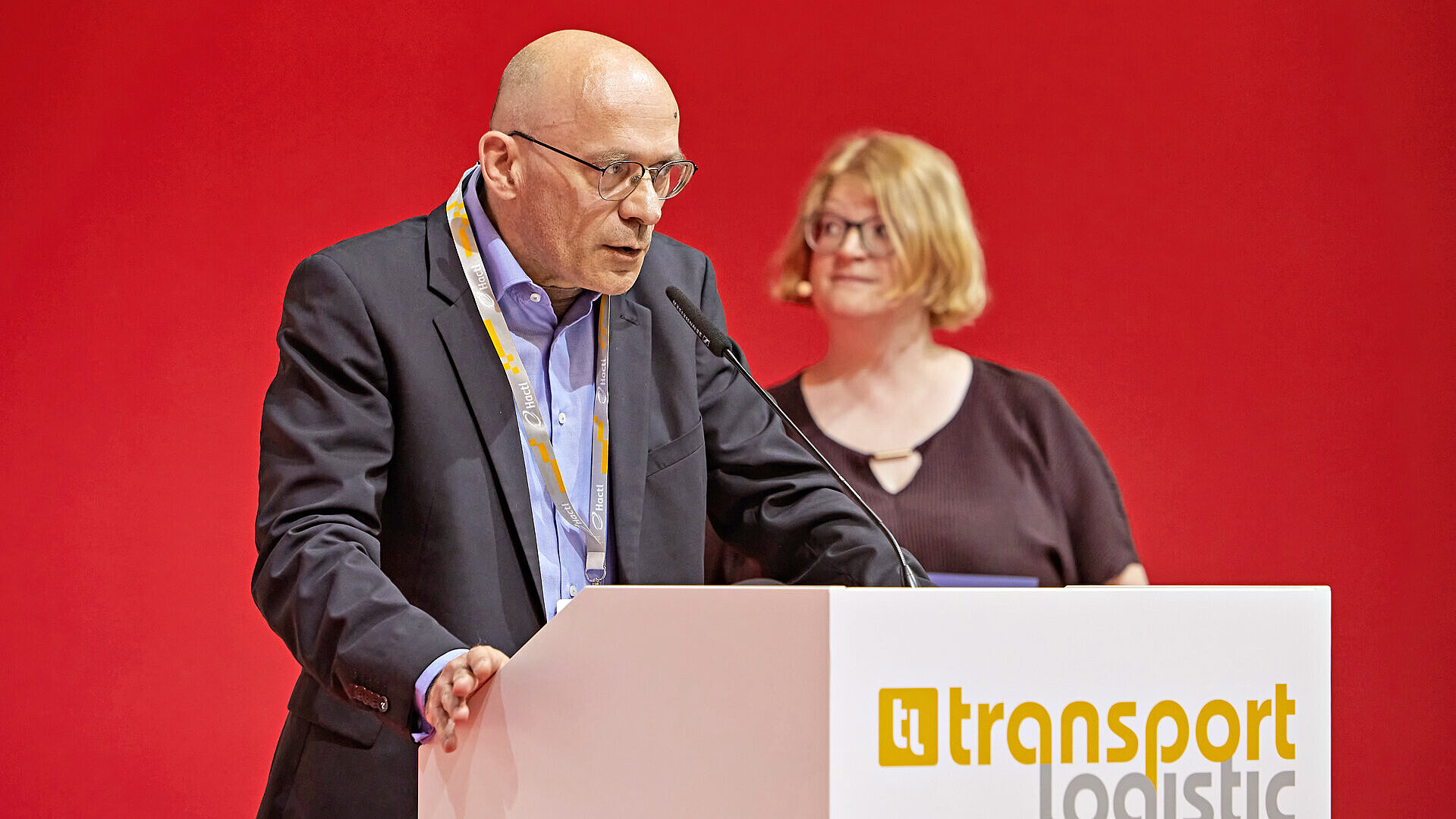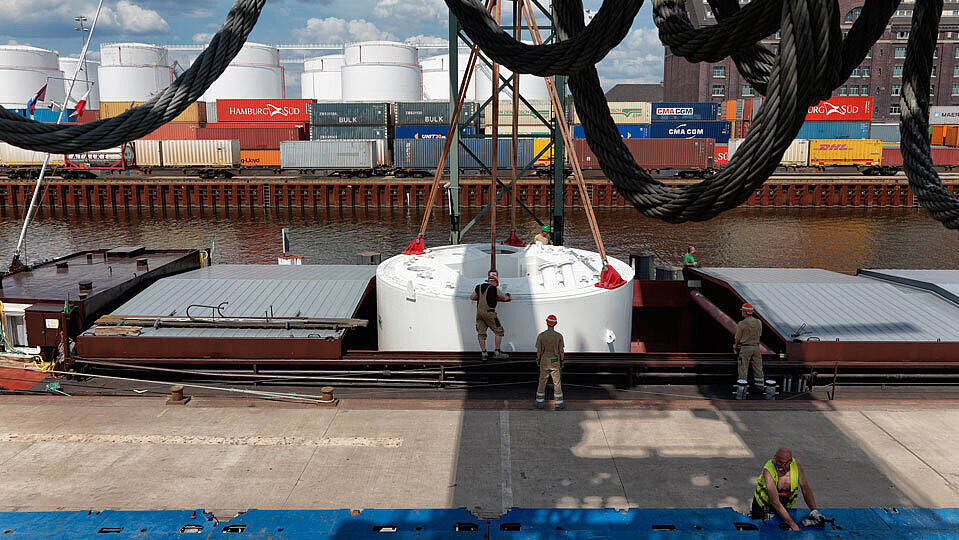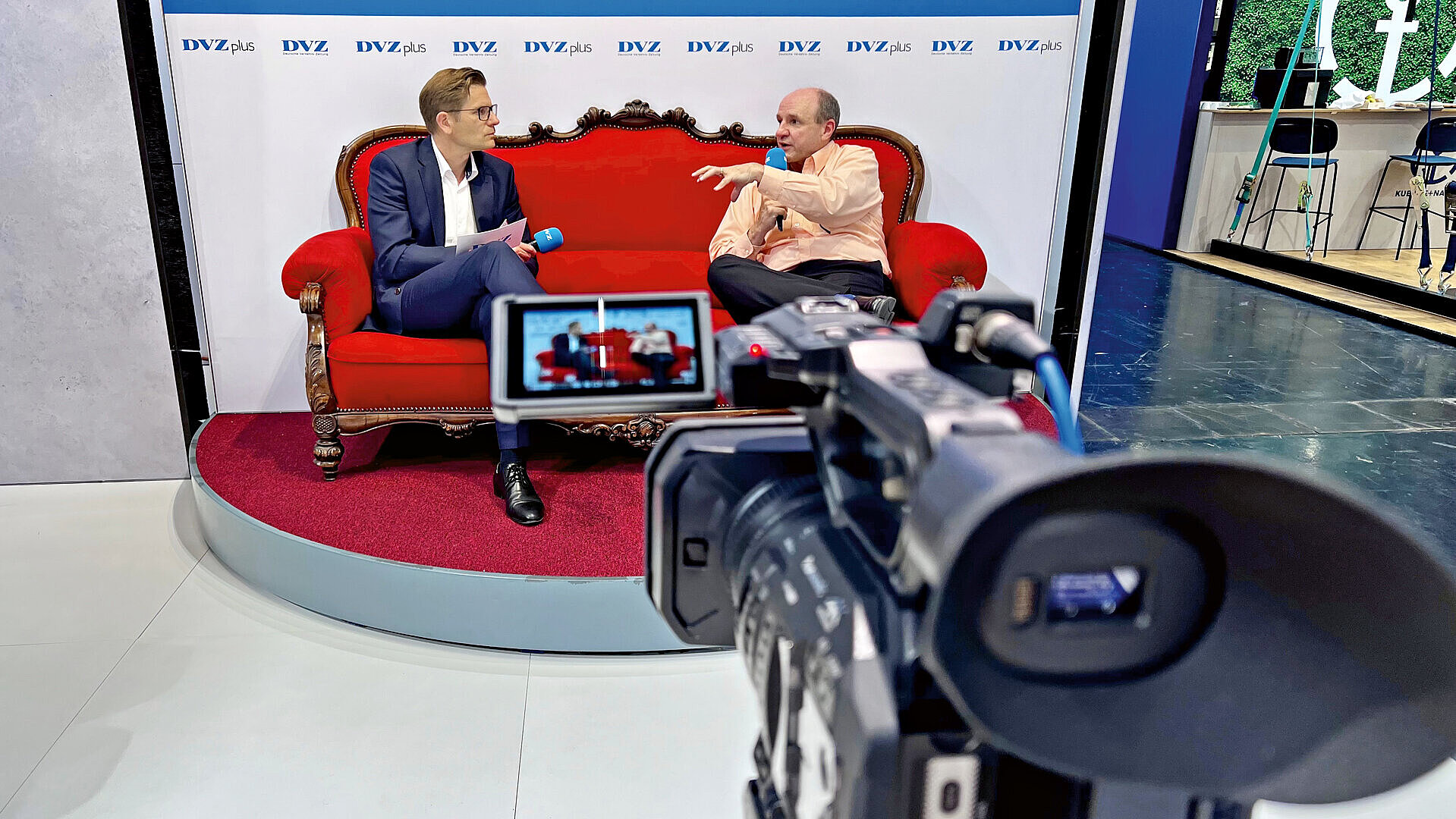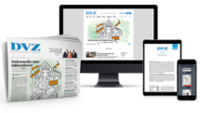
Opportunities and obstacles for inland waterway transport

Despite changes in the structure of goods, declining volumes, and the resulting decline in attention for inland waterway transport, industry players are convinced of the potential of waterways – especially regarding the success of the energy transition.
‘The energy transition needs inland waterway transport in its entirety,’ emphasised Professor Stefan Ulreich from Biberach University of Applied Sciences in his keynote speech at an event organised by the German Maritime Centre (DMZ) during transport logistic on Tuesday. The scientist explained that this mode of transport offers a number of climate advantages and has enormous growth potential.
He is convinced that inland waterway transport can develop much of this potential with the existing infrastructure. ‘We have no choice but to use the mode of transport that still has capacity – and that is waterways,’ said Heike van Hoorn, Managing Director of the German Transport Forum (DVF), in the subsequent discussion. After all, it takes decades for new roads and railways to be planned, approved, and finally built.
Immense potential for large and heavy volumes
Waterways could offer advantages for large-volume and heavy goods transport. The possibilities are immense compared to road transport, for example, emphasises David Schütz, Senior Manager at Deutsche Binnenreederei. "We can easily transport 600 tonnes by water. Our limits are far beyond what is possible by road or rail." Otherwise, there are only a few restrictions for particularly large transports at bridges or other bottlenecks.
‘We don't want to compete with truck and train transport, but rather work together intelligently,’ emphasises Schütz. Hilde Kammerer, head of department at the Federal Ministry of Transport, is also convinced of this. It is important to exploit the advantages of the various modes of transport. Above all, this includes the fact that waterways have a lot of capacity.
However, human habit has meant that, up to now, the routes, and means of transport that are familiar and therefore easier to plan have been used, reports van Hoorn. These include, above all, road, and rail. She is convinced that digital applications such as artificial intelligence could open new perspectives for shippers and freight forwarders when choosing a mode of transport.
Alexander Ochs, Managing Director of Kühne + Nagel Euroshipping, argues that the economic benefits of transport by water – by relieving the burden on roads and railways – should be converted into economic advantages for companies. Regarding support programmes, he complains that existing de minimis support structures are far too complicated for small and medium-sized enterprises, with the result that they are not used. ‘This has to be simplified.’ There is no need to reinvent the wheel; other support programmes – for example, from combined transport – could serve as a good model for inland waterway transport.
Concerns about qualified personnel
Experts see the shortage of skilled workers as a major obstacle in the foreseeable future. ‘The demographic outlook for waterway and shipping administration, for example, is very poor,’ Ministerial Director Kammerer makes clear. ‘We view this development with concern.’ Many experienced colleagues will soon be retiring.
At the same time, fewer young people are entering the administration. For example, hydraulic engineers are a rare breed who are also sought after by the private sector, which offers better salaries. Schütz from the inland shipping company argues that waterways should play a greater role in the training of freight forwarders. The proportion was already very low around 30 years ago and ‘the situation has worsened to this day.’
Only if the ‘architects of transport’ are aware of the advantages, disadvantages, and risks of individual modes of transport can they organise transport in the best possible way. Kammerer adds: ‘The shift in transport begins in the mind.’
Due to the foreseeable shortage of skilled workers, van Hoorn sees an ‘inevitable need for digital and automated solutions. We cannot do without them.’ Among other things, remote-controlled ships would reduce idle time for inland waterway transport operators and make the job more attractive because it would become more family friendly.
In order to make this mode of transport fit for the future, stakeholders want inland waterway transport to be recognised on an equal footing, more skilled workers to be available and a range of modern, environmentally friendly propulsion systems to be made available. Cooperation with other modes of transport must also be improved so that capacity can be freed up for other goods on the railways, for example. Schütz also proposes pragmatically expanding the navigation areas for inland waterway vessels in Germany. Although this is still a tough nut to crack in negotiations with the authorities, he ‘wants to prove that it is possible to sail inland waterway vessels close to the coast to ports in the North Sea and Baltic Sea again.’



